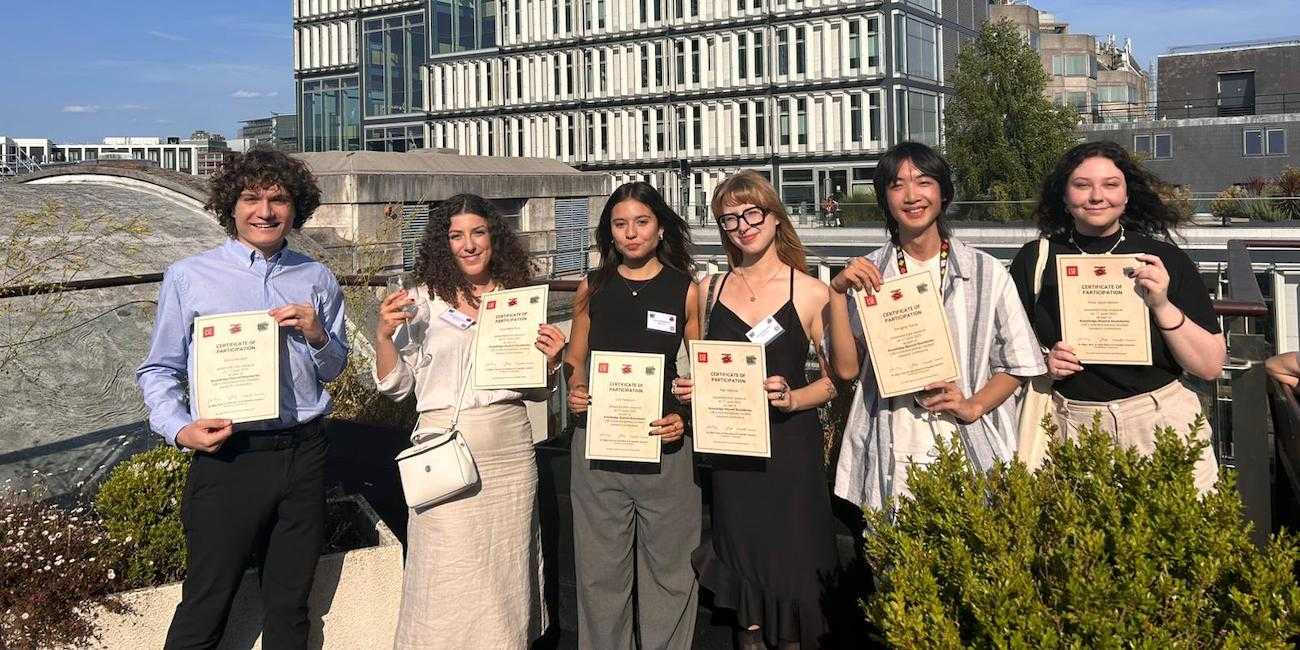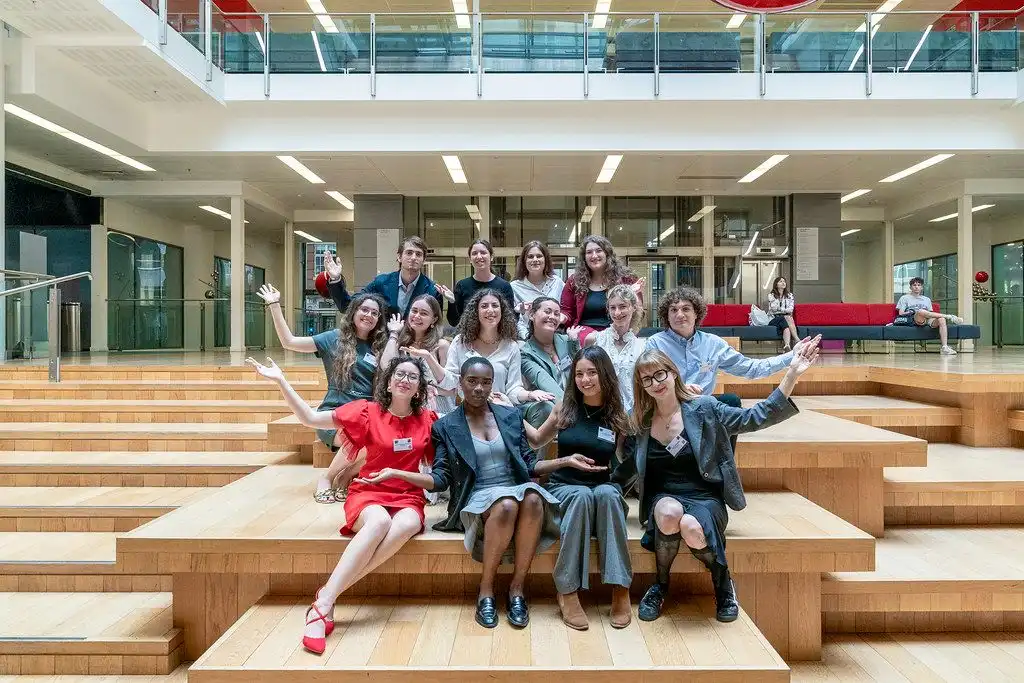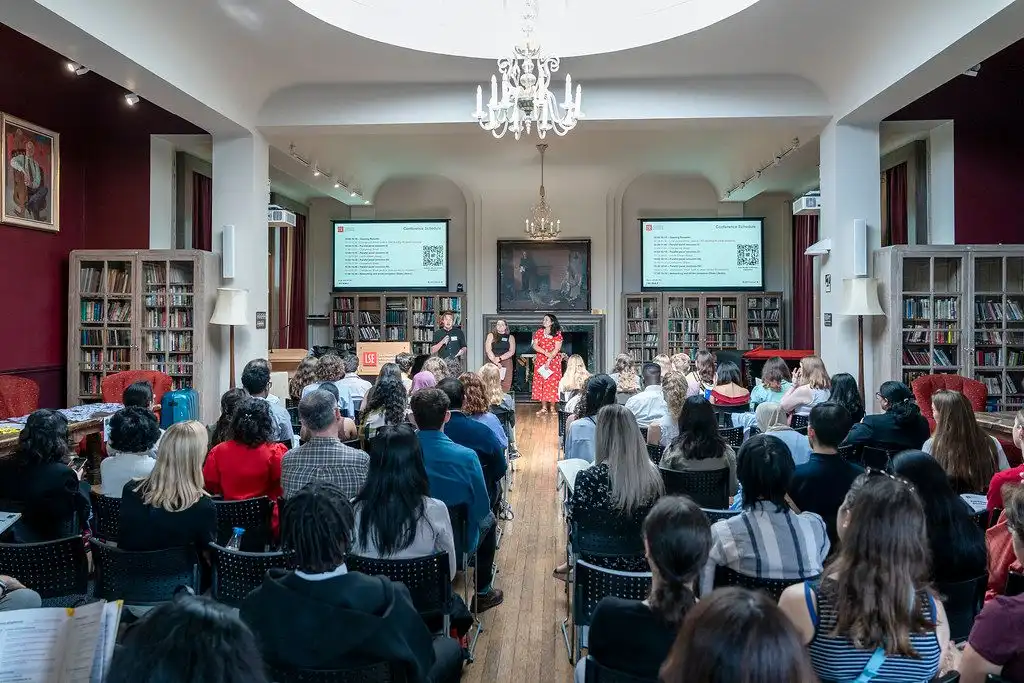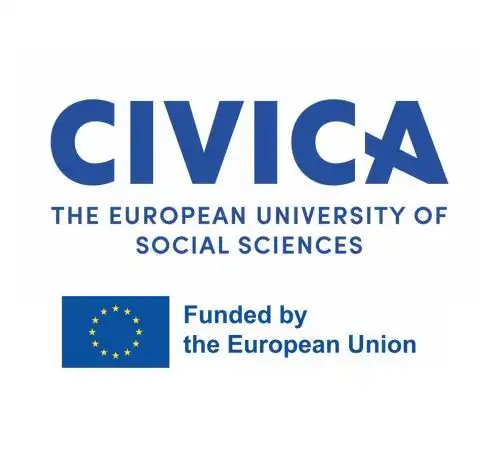Home>"Visions for the Future" Festival: 22 Undergraduate Students Invited to the LSE

11.07.2025
"Visions for the Future" Festival: 22 Undergraduate Students Invited to the LSE

On June 17, the London School of Economics hosted the “Visions for the Future” Festival. This academic conference was conceived as a space for collective reflection on major contemporary challenges and future changes. Our European university alliance CIVICA allowed 22 students from Sciences Po's Undergraduate College to attend.
Their contributions – whether scientific articles, posters or artistic performances - illustrate the school's determination to strengthen the research dimension right from the undergraduate level. The themes addressed covered a broad spectrum, reflecting the richness of the commitments: artificial intelligence and technological transitions, environmental justice, social and environmental transformations.

All these themes converge on the same question: what will our future look like? Bachelor students have responded to this question with some rigorous work, a selection of which is given below.
My presentation was quite unique. I shared the findings of my Capstone Project (Civic Learning Programme) on education through art, based on a volunteer project I founded in Peru. This project works with children and adolescents in shelters, using artistic activities to foster both personal and professional development.
The presentation took the form of a poetic performance and a video compilation that documented the project’s evolution over three years. The issue I addressed was the lack of quality education for vulnerable populations.
My main proposal was to address this gap through creative, artistic, and holistic development programs. The findings highlighted how artistic expression can be an effective educational tool to foster empowerment, engagement, and learning.
My research project addresses the digital poverty that migrant women can face. Gayatri Chakravorty Spivak works were pivotal for my research. Her postcolonial approach to gender-related matters is illuminating and thought-provoking, especially in her conception of situated knowledge, which truly resonates with the question of digital inclusion.
I tackled the issue of the digital divide with an emphasis on the individuals most at risk. Contrary to common assumptions, it is not merely a question of generation or age, but rather a social and gender-related matter. Migrant women, being disproportionately more vulnerable to economic precariousness, lacking access to education, and being invisibilised by public policymaking, find themselves more exposed to digital anxiety and to a lack of access to devices.
Therefore, I wished to emphasize the relevance of a horizontal approach to teaching digital skills, of incorporating them into language classes, but also sought to go beyond merely bridging the divide by considering digital inclusion as a means of emancipation—most notably through socially-oriented outsourcing practices.
I presented a comparative analysis of how heritage protection and energy efficiency can be reconciled, using the cross-border Upper Rhine region (France, Germany, Switzerland) as a case study.
This analysis is in line with Sciences Po's curriculum, in particular the courses on the territorial dimension of cross-border governance. I'm thinking in particular of the “Elaboration of a strategy for the balanced development of territories between France and the Grand Duchy of Luxembourg” course, where we were required to conduct research and interviews.
As far as methodology is concerned, I found it very useful to pay close attention to the link between theoretical reflections on public policy analysis and field studies rooted in the local dimension and the search for first-hand documentation.
The festival was an intellectual and personal highlight for all the bachelor students who took part.
The European dimension of the scholarly conference, facilitated by the CIVICA alliance, fuelled a particularly stimulating academic dynamic. The diversity of approaches, the density of exchanges and the richness of shared perspectives enabled the participants to take an in-depth look at major contemporary changes.

Cover image caption: The students of our Undergraduate College at the London School of Economics, 18 June 2025. (credits: Lara Maria Puoti)
Open house days 2026

Virtual Undergraduate Open House day 2026
Come meet our teams and students at our campuses.
Virtual Graduate Open House day 2026
Meet faculty members, students and representatives and learn more about our 30 Master's programmes.